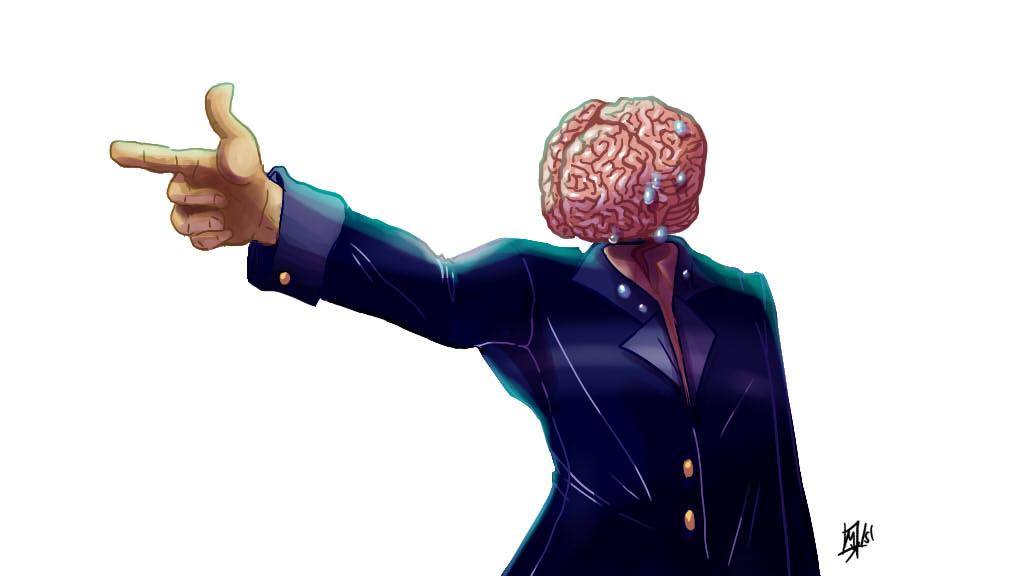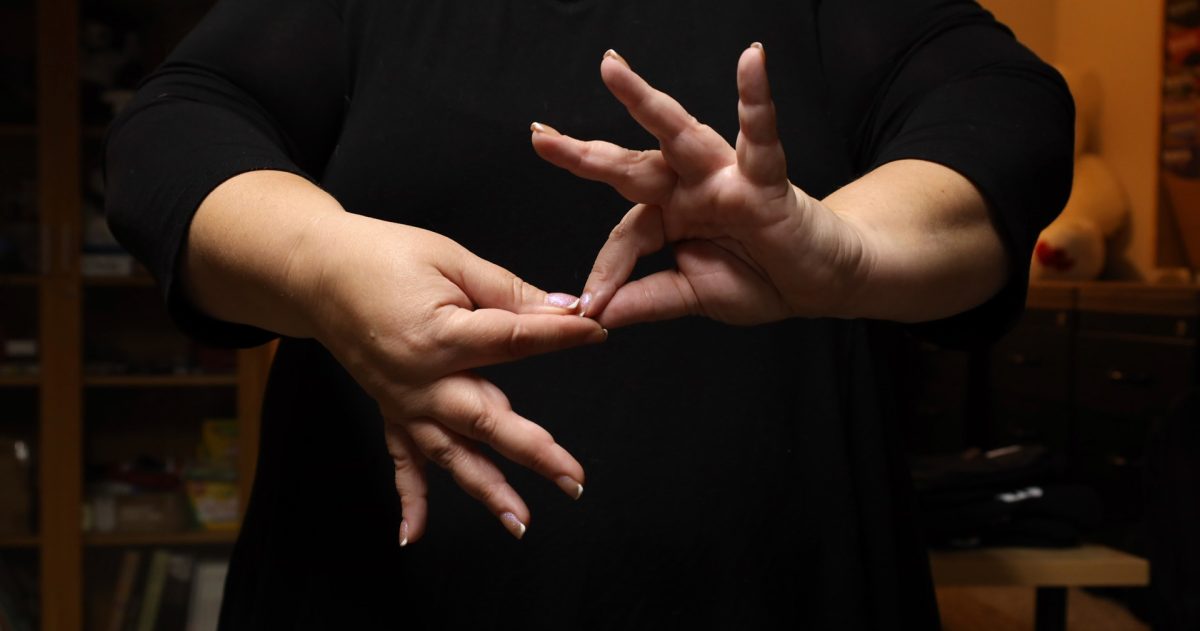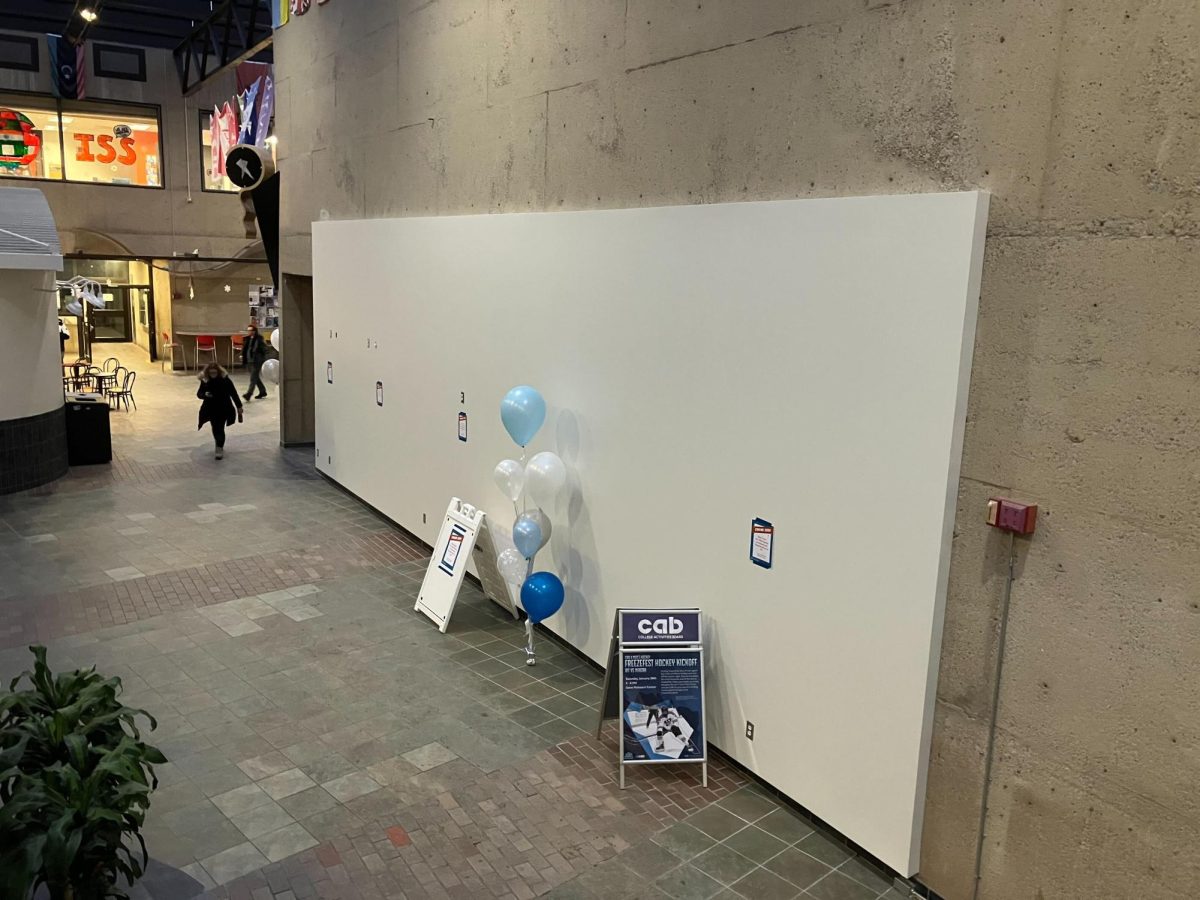“A week and a half ago, a friend passed away. To be perfectly honest, I don’t have anyone to talk to,” one student said. “I can’t talk to [my friends] about it; I’ve never heard anyone talk about anything like that. I’d never talk to my advisor about it. I can’t get into the counseling center.
“I just want you to know, A 17-year-old girl I’ve known my whole life died from the same thing I have. And I have no one I can talk to about it. I had a problem week six, and I can’t go see someone about it.”
On March 13, early in the afternoon, students gathered to share their thoughts and struggles with Dr. Richard Keeling and Joey Desanto Jones from Keeling & Associates. The firm has been brought on by the administration to do a review of the health and counseling program at RIT. Keeling opened the floor almost immediately: “What is the good, the bad and the ugly?” he asked.
One student stood up, and said that it was very difficult to get appointments. “You go there, and … they basically assign you a call; they’ll call you a couple of days from now, and then you’ll get an appointment a week from now.” And even then, it’s a group session.
“A lot of people don’t go to the counseling center because they want to see you a week from now.”
They also mentioned that the counseling center seems to have a very bad process for determining whether you are in critical condition for suicide prevention.
Keeling spoke up. He wanted to press on the issue of the delay. “In many universities, there’s an interest in what students do if there’s a delay. Some will decide ‘I’ll just wait it out,’ sometimes they seek care, sometimes they just abandon it. What do students do here, in your experience?”
One student said they “went home and relapsed because of the issue of not getting in.” When they finally got there three weeks later, they found the counseling center to be extremely patronizing.
“I will never go back,” they said, “unless we change things.”
The next student who spoke agreed. “[The counselor] basically said ‘You can do group therapy … either that or we can’t help you.'” The student fought for individual care and was eventually assigned a graduate student, who “had no idea what she was doing.” Eventually, she just stopped scheduling appointments for the student.
“So you felt abandoned?” Keeling asked.
“Yeah.”
There were several Resident Advisors (RAs) at the forum, and their consensus was that it is difficult to point students toward the counseling center when they didn’t believe in it themselves. Residents who did try it rarely had good experiences, and never went back.
“How do we get students go go back to the system when they’ve already lost faith? They don’t want to go back.”
One student stood up and said that they had started a survey on the counseling center. In it, he said, people all wrote about the same issues. “I couldn’t get into the counseling center, and because of that I didn’t pursue it, or I didn’t get a call back, or I no longer wanted to go to the counseling center.”
The survey also asked students to rate their experience with the center from “Extremely Satisfied” to “Extremely Dissatisfied.” Eighty-three percent of students rated it either “Dissatisfied” or “Extremely Dissatisfied.”
Keeling tried to sum up the feeling in the room, ticking the issues off on his fingers. “The concern I’m hearing is: one, for people who can’t get in, it’s hard to know what your alternatives are; two, there aren’t any; and three, there are financial concerns even if you know what the alternatives are.”
“I’ve actually had a pretty good experience with the counseling center,” one student said then. “I started seeing a counselor weekly.” This was before the huge backlogs, they explained. They felt like learned how to cope through the meetings. “I definitely saw improvements in myself,” the student said. Starting last year, though, they noticed a shift. There was more backlog; it was harder to get in.
“I know that if I was in the place now that I was two years ago, it wouldn’t have helped.”
The student who waited three weeks for an appointment said it was awful. “I left with a worse state of mind than I had when I went in.” She had an eating disorder, and felt that the counselor said “Well, don’t.”
“They don’t have anything for you in the wait time,” a student complained. So they told the center, “I actually need to see someone now.” The counseling center sent them to an Emergency Care person, who wasn’t helpful at all. The counselor asked flat-out whether the student was going to kill themself. The student answered truthfully: “I dunno.” The counselor replied, “I need to know that you won’t. How can I get that answer from you?”
One RA said that they had called Public Safety early in the morning and told the dispatcher they had “a mental health issue with a student.”
“Do you believe they will commit suicide right now?” the Public Safety officer asked.
“I had no idea,” the student told the forum. And then, more quietly, “I said ‘no.’”
One student had a friend freshman year that went to the counseling center and was prescribed drugs and told he should go home. “The end result was he committed suicide from home. The system was very flawed for him.”
“Either the administration is blind,” one student said, “or — I hate to say it — straight up lying about it. All the students know how awful it is, but the administration puts it on a pedestal, and trains all the YearOne and Orientation Advisors to point students toward it for all their problems. There just can’t be that large of a disconnect between students and faculty.”
The next student explained that they felt boxed in by the group sessions. “You can only have one problem at a time,” they said. There are sessions for anxiety, or sessions for depression. The students felt that the labels were harmful.
One student said “I didn’t even know the sessions were group, but now I would never go.”
“This was my only option, and it’s not really an option anymore.”
Jones wanted to know if there were any positive perceptions. One student said that when they went, there was a white fluffy dog there, which was more helpful than the actual therapist. That was the only positive experience anyone could think of.
“Why are we a school with 18,000 students who do not have enough counselors?” a student wanted to know.
“I am not a number,” they told the forum. “As the number of students … the number of mental health issues increase, why doesn’t the center grow too?
Student Government (SG) Director of Student Relations Nick Giordano spoke then. “There’s a pervasive mentality that mental health services are a boutique.”
The student who started the survey got up again. “If the big thing is resources,” he said, “there are things we could be doing that we’re not.” The Substance Abuse and Mental Health Services Administration (SAMSHA) has a suicide prevention grant. RIT is not looking for donors. “We’ve never applied for these grants,” the student said. “There’s money out there, and I’d like to see us try to get resources that way.”
Keeling closed the meeting, saying “Let me urge you not to let go. Do not be silent. Keep talking.”
UPDATE: To be put on Nick Giordano’s mental health mailing list, email sgrel@rit.edu.







